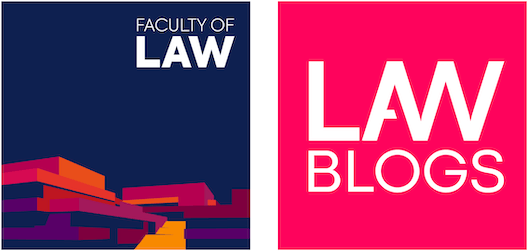Accessibility Statement
Accessibility statement for www.blogs.law.ox.ac.uk
This statement covers the website of the Faculty of Law, University of Oxford
This website is run by The Faculty of Law, University of Oxford. We want as many people as possible to be able to use this website. For example, that means you should be able to:
- change colours, contrast levels and fonts
- zoom in up to 200% without the text spilling off the screen
- navigate most of the website using just a keyboard
- navigate most of the website using speech recognition software
- listen to most of the website using a screen reader (including the most recent versions of JAWS, NVDA and VoiceOver)
We’ve also made the website text as simple as possible to understand.
AbilityNet has advice on making your device easier to use if you have a disability.
How accessible this website is
We know some parts of this website are not fully accessible:
- you cannot modify the line height or spacing of text
- most older PDF documents are not fully accessible to screen reader software
- live video streams do not have captions
- you cannot skip to the main content when using a screen reader
- some of the images on the site don’t have alt text however images on the most visited parts of the site do have alt text. We are working through the site to improve this as well as making alt text a mandatory field for content users who upload images in future.
- We acknowledge that we currently use PDF’s for large textual items (such as handbooks and research related documentation/reports). If you need an alternative version of a PDF document please contact communications@law.ox.ac.uk. We will work towards putting all information into webpages and if that isn’t possible will make PDF’s accessible in future..
Feedback and contact information
If you need information on this website in a different format like accessible PDF, large print, easy read, audio recording or braille:
- email – communications@law.ox.ac.uk
- call 01865 271491
- alternative email address: websupport@law.ox.ac.uk
We’ll consider your request and get back to you in 3 days.
If you cannot view the map on our ‘contact us’ page, call or email us lawfac@law.ox.ac.uk for directions.
Reporting accessibility problems with this website
We’re always looking to improve the accessibility of this website. If you find any problems not listed on this page or think we’re not meeting accessibility requirements, contact: communications@law.ox.ac.uk
Enforcement procedure
The Equality and Human Rights Commission (EHRC) is responsible for enforcing the Public Sector Bodies (Websites and Mobile Applications) (No. 2) Accessibility Regulations 2018 (the ‘accessibility regulations’). If you’re not happy with how we respond to your complaint, contact the Equality Advisory and Support Service (EASS).
Contacting us by phone or visiting us in person
All our details can be found on the contact us page on the website.
Technical information about this website’s accessibility
The Faculty of Law, University of Oxford is committed to making its website accessible, in accordance with the Public Sector Bodies (Websites and Mobile Applications) (No. 2) Accessibility Regulations 2018.
Compliance status
This website is partially compliant with the Web Content Accessibility Guidelines version 2.1 AA standard, due to the non-compliances listed.
Accessibility Known Issues
The content listed below is non-accessible for the following reasons:
Issues with documents, including Word files, PowerPoints, PDFs
- Many of the documents (Word and PDF) on this site do not meet accessibility standards, which could result in them not being fully accessible to users of screen readers.
Documents that are essential to the service we provide will be either converted to HTML pages or replaced with accessible versions by September 2021. Any new PDFs or Word documents we publish will meet accessibility standards.
The accessibility regulations do not require us to fix PDFs or other documents published before 23 September 2018 if they’re not essential to providing our services.
- Some images do not have a text alternative, so people using a screen reader cannot access the information. This fails WCAG 2.1 success criterion 1.1.1 (non-text content).
We plan to add text alternatives for all images by September 2021. When we publish new content we’ll make sure our use of images meets accessibility standards.
Disproportionate burden
We do not consider any of the accessibility issues to be a disproportionate burden and aim to make the site fully compliant in our new site due to be launched in October 2022.
We’ve assessed the cost of fixing the issues with navigation and accessing information, and with interactive tools and transactions. We believe that doing so now would be a disproportionate burden within the meaning of the accessibility regulations.
Content that’s not within the scope of the accessibility regulations
Third-party content
Our site includes third party content and functionality. This may direct you to a related service, link to another site or supporting documentation. We are not responsible for the accessibility of third-party content or to other sites we link to.
This includes:
YouTube videos
Sound Cloud audio files
Google maps
We will provide an accessible alternative to any third-party content that isn’t compliant.
Live video
We do not plan to add captions to live video streams because live video is exempt from meeting the accessibility regulations.
We want to provide the best possible experience for all our website visitors. To achieve this we will:
- Fix known issues
- Check all new features in the Drupal Content Management System which is used to create this website, for accessibility before they are made available
- Check all new content for accessibility
- Train all content editors on accessibility
- Carry out periodic accessibility checks
Preparation of this accessibility statement
This statement was prepared on 16 September 2020.
This website was last tested in August and September 2020. The test was carried out by the Faculty Communications Manager and IT Manager using a carefully chosen sample of pages and content types.
